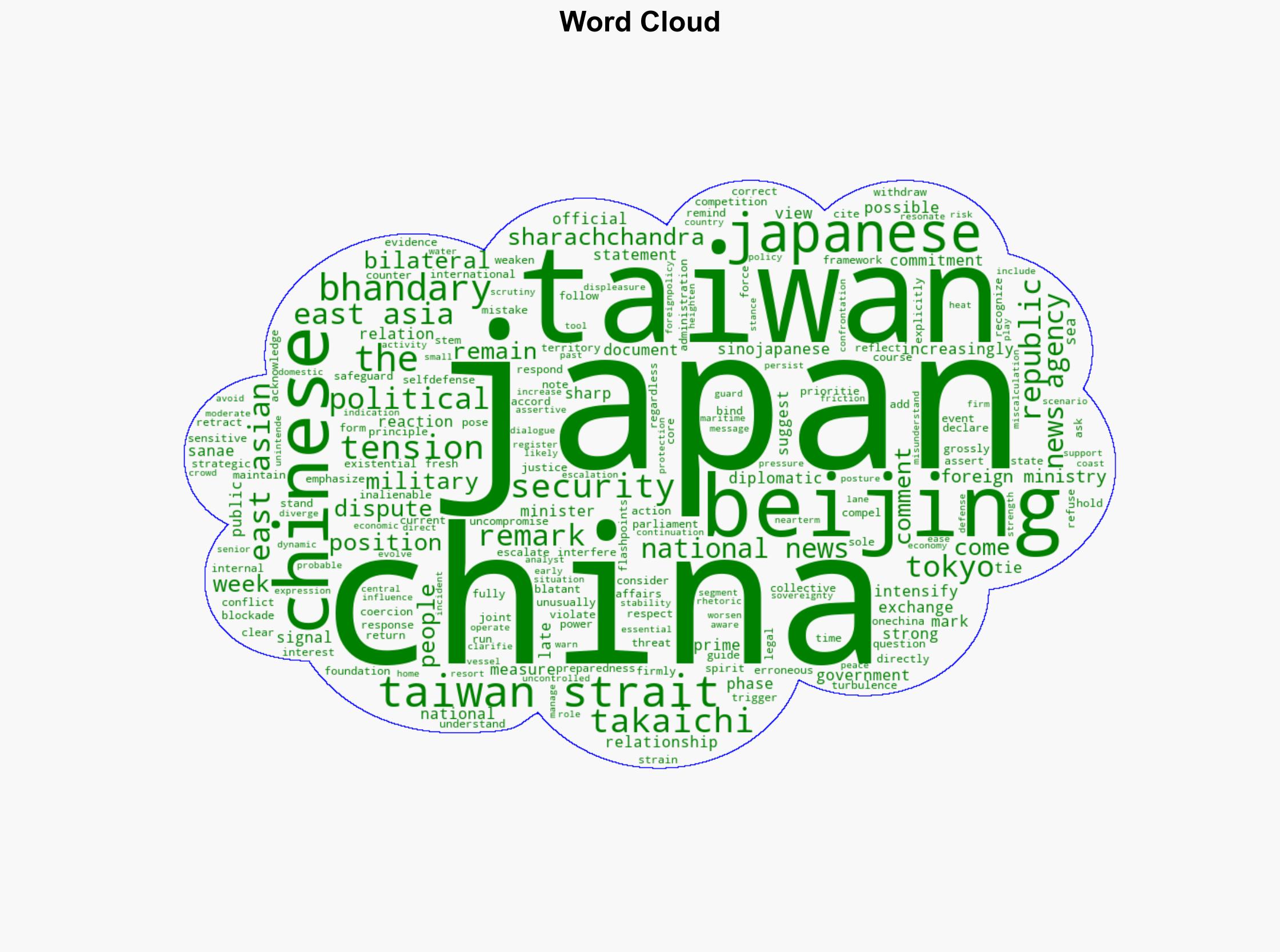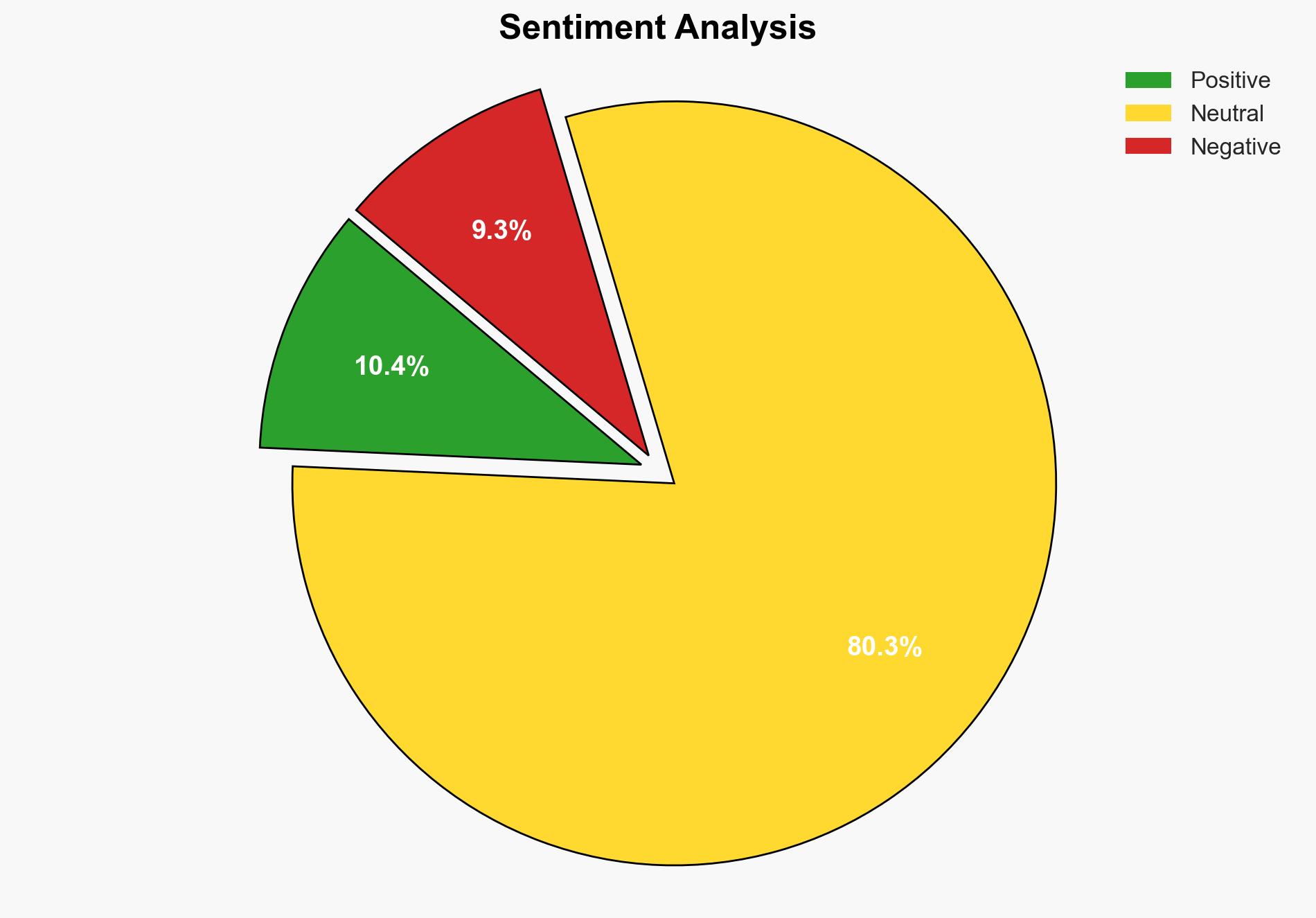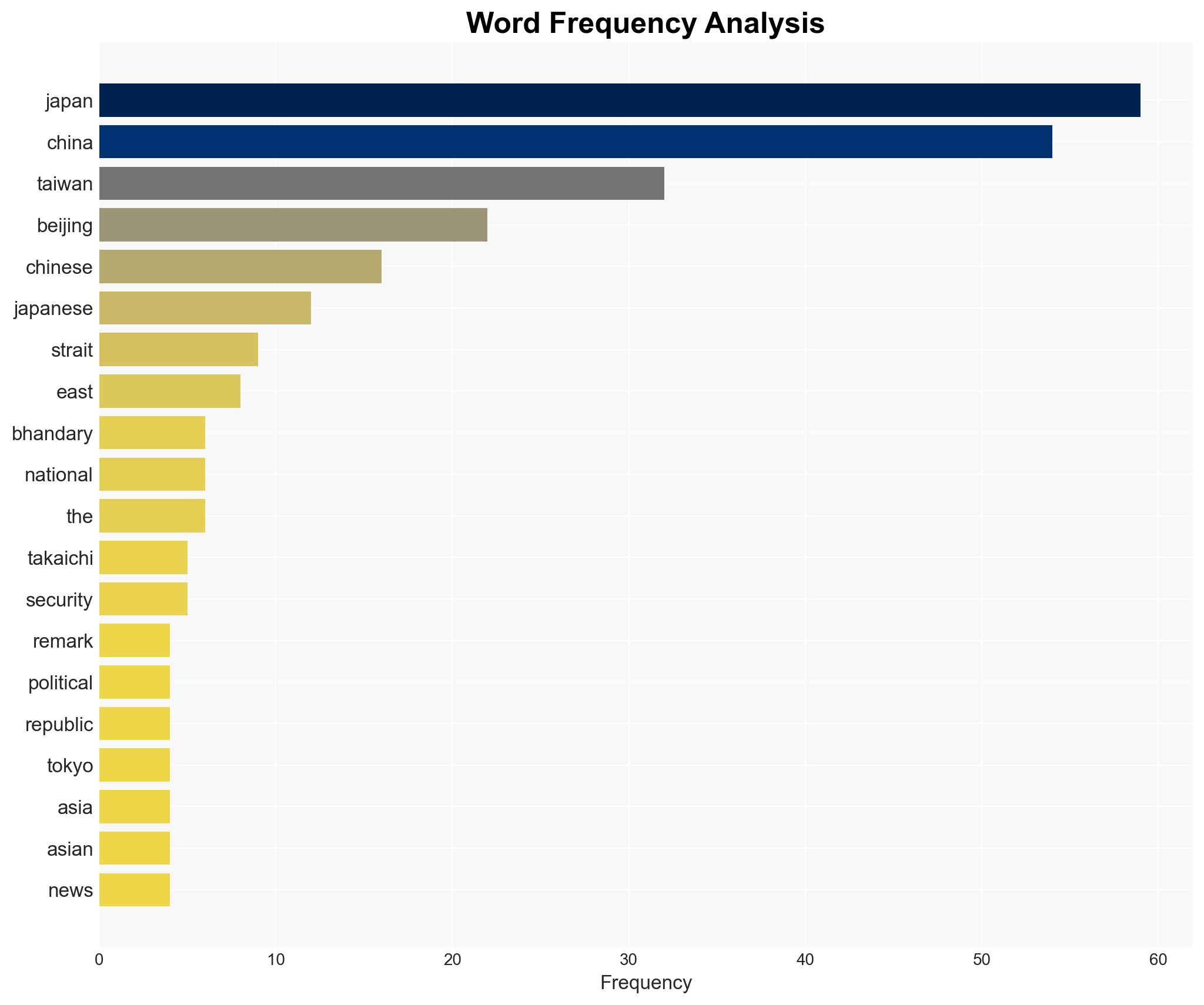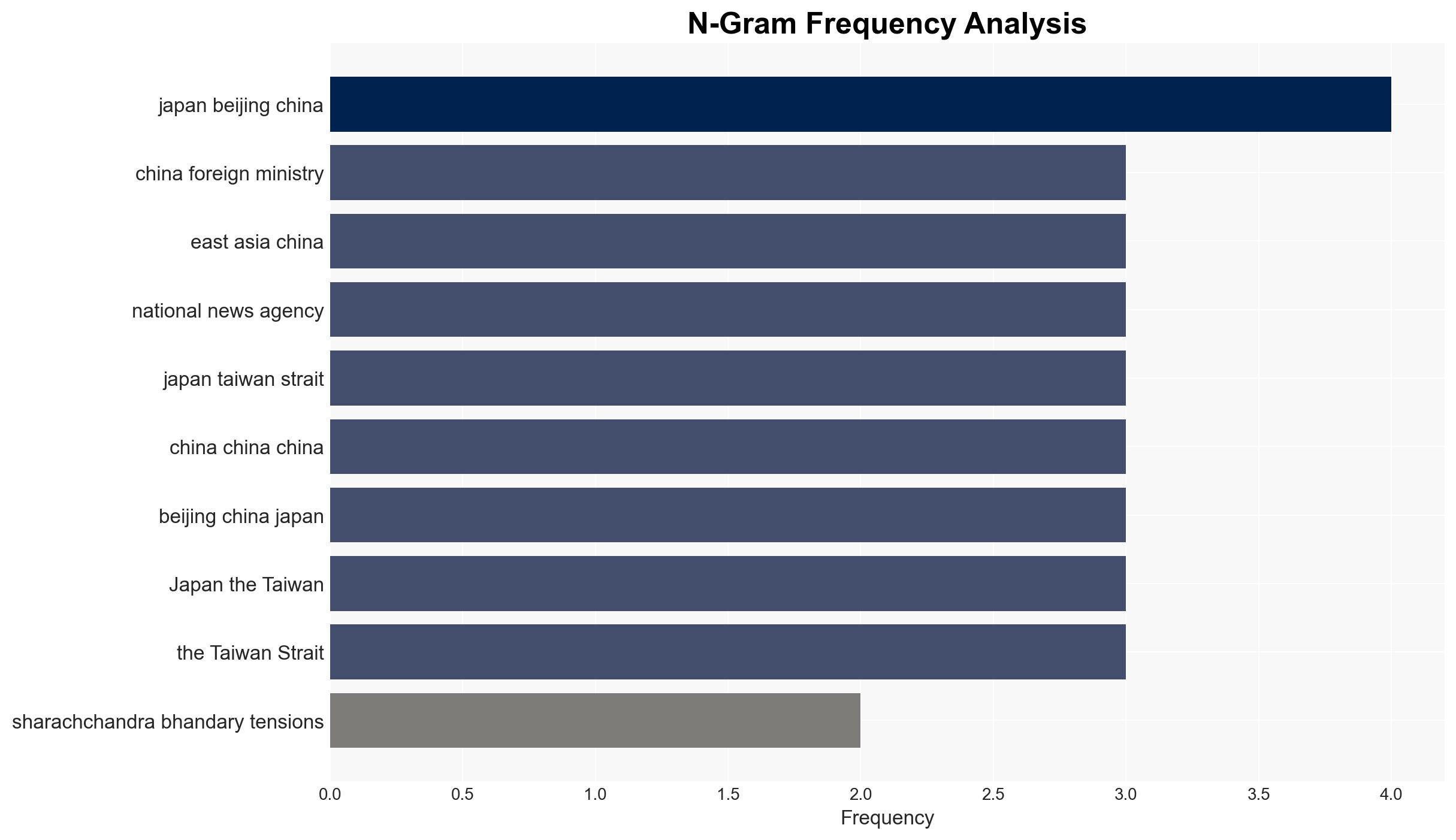Takaichis Taiwan remarks deepen strain in ChinaJapan relations – Mypeoplesreview.com
Published on: 2025-11-19
AI-powered OSINT brief from verified open sources. Automated NLP signal extraction with human verification. See our Methodology and Why WorldWideWatchers.
Intelligence Report:
1. BLUF (Bottom Line Up Front)
The most supported hypothesis is that Japan’s firm stance on Taiwan, as articulated by Prime Minister Sanae Takaichi, reflects a strategic shift towards a more assertive defense posture in response to perceived threats from China. This is likely to result in sustained diplomatic tensions but not immediate military confrontation. Confidence Level: Moderate. Recommended action includes diplomatic engagement to clarify positions and prevent escalation.
2. Competing Hypotheses
Hypothesis 1: Japan’s remarks are a strategic move to assert its defense posture and align with U.S. interests in the region, anticipating increased Chinese military activity around Taiwan.
Hypothesis 2: The remarks are primarily domestic political signaling, aimed at consolidating support for Takaichi’s government by appealing to nationalist sentiments, with less emphasis on actual military intentions.
Hypothesis 1 is more likely, given the context of regional security dynamics and Japan’s recent defense policy shifts, indicating a genuine strategic concern over China’s actions.
3. Key Assumptions and Red Flags
Assumptions: Japan perceives China’s military actions as a direct threat to its national security. The U.S.-Japan alliance is a critical factor in Japan’s defense strategy.
Red Flags: Potential misinterpretation of Japan’s intentions by China could lead to unintended escalation. Domestic political pressures in Japan may drive more assertive rhetoric.
Deception Indicators: China’s public statements may downplay its military intentions while continuing to increase military presence near Taiwan.
4. Implications and Strategic Risks
The primary risk is a miscalculation leading to military incidents in the Taiwan Strait, which could escalate into broader conflict. Economic sanctions or cyber operations by China against Japan could also occur as retaliatory measures. Information warfare, including propaganda and misinformation, may intensify to sway public opinion in both countries.
5. Recommendations and Outlook
- Engage in diplomatic dialogue with China to clarify Japan’s defense posture and intentions, reducing the risk of miscalculation.
- Strengthen regional alliances and partnerships to present a unified front on Taiwan’s security issues.
- Monitor Chinese military activities and prepare contingency plans for potential economic or cyber retaliations.
- Best Scenario: Diplomatic engagement leads to a mutual understanding, stabilizing the situation.
- Worst Scenario: Misinterpretations lead to military skirmishes, damaging regional stability.
- Most-likely Scenario: Continued diplomatic tensions with periodic escalations in rhetoric and military posturing.
6. Key Individuals and Entities
Sanae Takaichi (Japanese Prime Minister), Chinese Foreign Ministry, Japanese Defense Ministry.
7. Thematic Tags
Structured Analytic Techniques Applied
- Cognitive Bias Stress Test: Expose and correct potential biases in assessments through red-teaming and structured challenge.
- Bayesian Scenario Modeling: Forecast futures under uncertainty via probabilistic logic.
- Network Influence Mapping: Map relationships between state and non-state actors for impact estimation.
- Narrative Pattern Analysis: Deconstruct and track propaganda or influence narratives.
Explore more:
National Security Threats Briefs ·
Daily Summary ·
Support us





